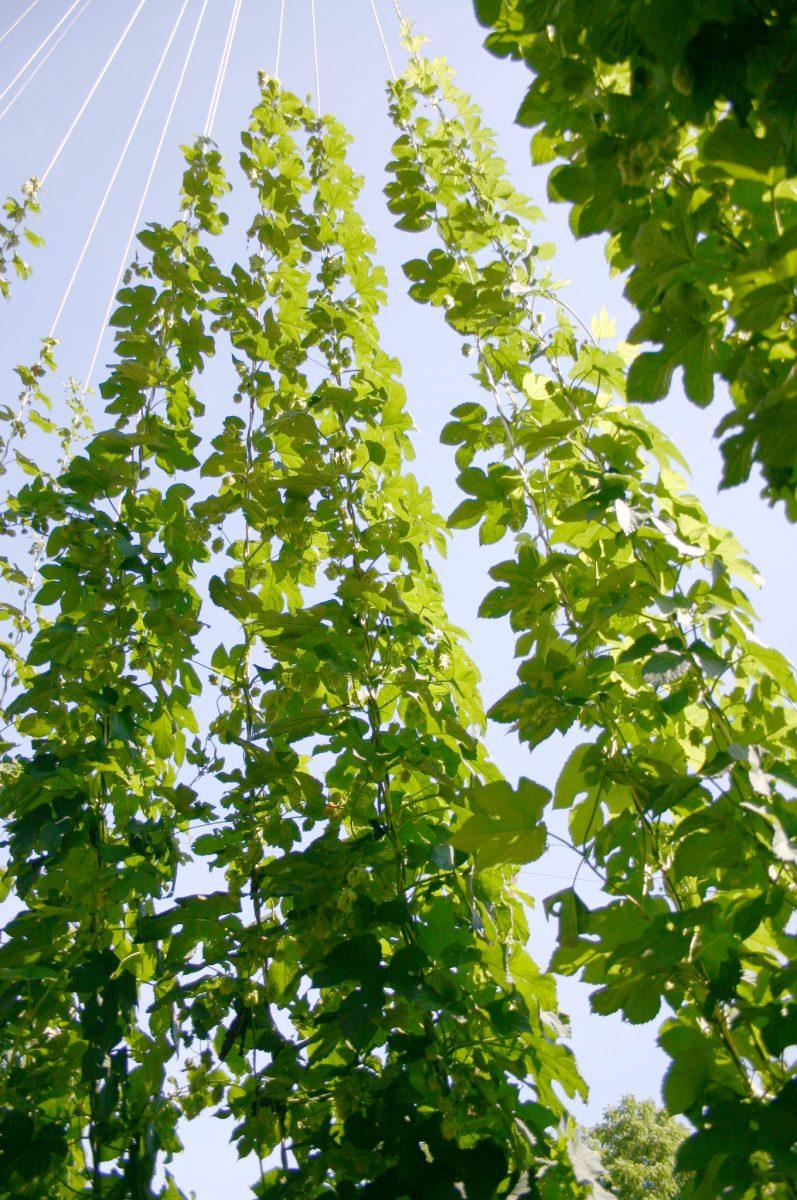Although the craft beer industry is quickly growing in North Carolina, N.C. State researchers have to work hard to overcome some of the natural roadblocks of growing hops in the state.
According to Forbes.com, the number of breweries in North Carolina grew 33 percent since last year—to 70 breweries. Additionally, three nationally accredited breweries, Sierra Nevada, New Belgium and Oskar Blues, will soon move to the state.
“We’re in such a unique position with all of the craft breweries that we have, and with having the big three coming into the area now,” said Jeanine Davis, associate professor and extension specialist in the Department of Horticultural Science at N.C. State.
According to beerpulse.com, Sierra Nevada alone is investing $107.5 million during the next five years in its brewery—bringing 95 full-time jobs, 80 part-time jobs and 60 construction jobs to North Carolina.
However, environmental conditions in the state are not ideal for growing hops. As a result, there have been several research grants issued to help learn more about how to overcome some problems.
In January, the Technician spoke with N.C. State’s Davis and Rob Austin, a research specialist in soil science in the College of Agriculture and Life Sciences, about their research in the hop farming industry in North Carolina.
Austin completed his grant and has moved on to other responsibilities, but Davis is continuing her work.
Davis said hops grown in the south do not produce as much agricultural output as those grown in the north and northwest because the plant requires long days, which allow it to become stronger before the flowering phase.
“We had really great concerns about the yields the first couple of years, but they’re increasing,” Davis said. “We’ll never reach Pacific Northwest levels, you know like they have, but I think that we will continue to improve our yields as we learn better how to grow these plants.”
Davis said that North Carolina is really the southernmost place for high-yielding hop farming.
“I mean you can grow hops all the way down into Florida, you just don’t get that many cones,” Davis said.
She said that her team is coming up with ways to trick the plant. This is fairly new research. Many of the problems associated with growing hops in North Carolina don’t exist elsewhere in the colder-climate, drier areas in the country where hops are more commonly grown.
Davis said she thinks the hop industry will grow in the future.
“A lot of the big commodity crops are changing and I think that this could be another really high value crop, very similar to the wine-grape industry that we see,” Davis said.
According to Davis, many people initially doubted suitable grapes could be grown for wine here in the state. Now, the industry is doing very well. According to the North Carolina Tourism Board, there are more than 400 vineyards and 100 wineries across the state.
“I think you’re going to see the same thing with hops,” Davis said.
Davis is currently halfway through her two-year research grant for the project, but she said in order to really accomplish her goals in the field, more money is going to be needed.
“It’s just enough [money] to keep the research hop yard up here going, and to do some outreach,” Davis said. “So if we really want something to happen, we need to bring in more money.”
Davis hopes to work with researchers from surrounding states, whom she’s already been in contact with, to get a multi-state grant going.
“It would make more sense to serve as a region instead of just a state,” Davis said.
The support for North Carolina crops and products will have a lot to do with the industry’s success, Davis said. So will all of the people in the hops industry, who are all working together to find solutions. Still, Davis has high expectations.
“They’re going to make it happen. They’re a tenacious bunch,” Davis said.








